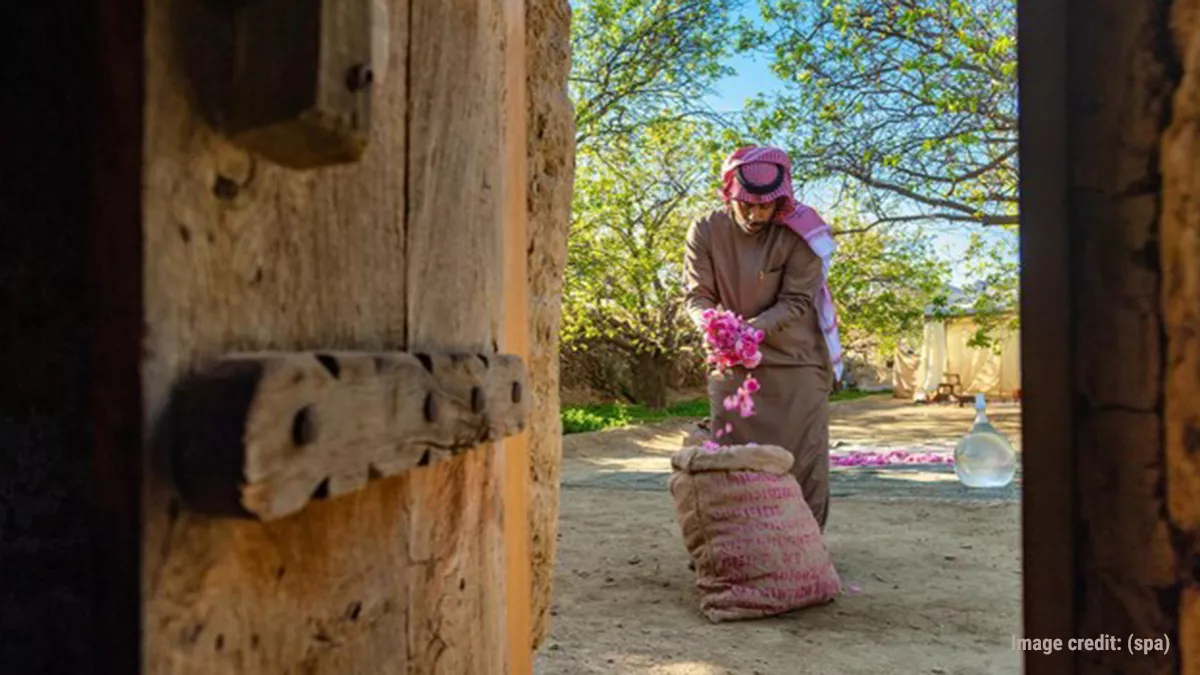
Taif roses and henna have recently earned a spot on UNESCO's Intangible Cultural Heritage list, thanks to the efforts of Saudi Arabia’s Heritage Commission. This achievement comes after a collaborative initiative involving the commission, the Saudi National Committee for Education, Culture and Science, and Saudi Arabia’s Permanent Delegation to UNESCO, with the UAE playing a leading role.
Henna is a culturally significant tradition in Saudi Arabia, particularly practiced by women, and has been passed down through generations. It symbolizes “joy and optimism” and is a social custom that strengthens the bonds within communities.
The sector has become a major investment in the Saudi market, now worth over SR64 million ($17 million). Production has surged, with farms in the Sarawat mountains currently harvesting around 550 million roses annually.
The industry includes more than 910 Taif rose farms across the region, supported by 70 factories and laboratories. These facilities produce more than 80 various products derived from roses.
Distillation uses specialized copper vessels, selected for their excellent heat conductivity, which outperforms other metals. The elevated temperatures enhance both the efficiency and yield of the process.
This method produces three distinct products: standard rosewater, concentrated rosewater (traditionally referred to as bride’s water), and the highly sought-after rose oil.
